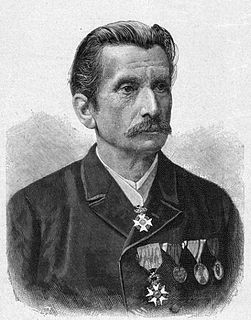A Quote by Leopold von Sacher-Masoch
Pleasure alone makes existence worthwhile. A pleasure-seeker has a difficult time parting from life.
Related Quotes
Lenten practices of giving up pleasures are good reminders that the purpose of life is not pleasure. The purpose of life is to attain to perfect life, all truth and undying ecstatic love - which is the definition of God. In pursuing that goal we find happiness. Pleasure is not the purpose of anything; pleasure is a by-product resulting from doing something that is good. One of the best ways to get happiness and pleasure out of life is to ask ourselves, 'How can I please God?' and, 'Why am I not better?' It is the pleasure-seeker who is bored, for all pleasures diminish with repetition.
The existence of pleasure is the first mystery. The existence of pain has prompted far more philosophical speculation. Pleasure and pain need to be considered together; they are inseparable. Yet the space filled by each is perhaps different. Pleasure, defined as a sense of gratification, is essential for nature
Pleasure is not the goal of man, but knowledge. Pleasure and happiness comes to an end. It is a mistake to suppose that pleasure is the goal. The cause of all the miseries we have in the world is that men foolishly think pleasure to be the ideal to strive for. After a time man finds that it is not happiness, but knowledge, towards which he is going, and that both pleasure and pain are great teachers.
The pleasure and the love of God for His creatures constitute the original state. His pleasure and love are the means by which He has brought His creatures into existence and are the cause of that bringing into existence. He who knows that he possesses neither being nor act rediscovers himself in that original state of pleasure and divine love.
We have no knowledge, that is, no general principles drawn from the contemplation of particular facts, but what has been built up by pleasure, and exists in us by pleasure alone. The Man of Science, the Chemist and Mathematician, whatever difficulties and disgusts they may have had to struggle with, know and feel this. However painful may be the objects with which the Anatomist's knowledge is connected, he feels that his knowledge is pleasure; and where he has no pleasure he has no knowledge.
When you're comfortable and secure, it's not enough. The mind doesn't stop there because it has to continue to focus itself as this body, so it moves to pleasure. And pleasure really is a non-existent thing. When we're experiencing pleasure, we're trying to hold onto it as it leaves, so it really isn't pleasure. Pleasure is pain because we're grasping.
At the heart of our desires is eternal happiness without the slightest hint of misery. You could say that we are pleasure seekers; however, seeking pleasure from the objects of our five senses produces fleeting moments of pleasure whereas, pleasure of one's self, a soul, is eternal and ever-increasing pleasure.
I tried to think about these two issues very freely. With sex, I think I can manage with that. With death, this is a more difficult theme for me. I'm not a believer, even though I'm baptized. I don't practice. I don't believe in God, so I feel very alone facing death. What I discovered is that the only way to recognize death is if you are part of life, if you are part of sexual pleasure, if you link it with sexual pleasure.
Marriage has, for its share, usefulness, justice, honour, and constancy; a stale but more durable pleasure. Love is grounded on pleasure alone, and it is indeed more gratifying to the senses, keener and more acute; a pleasure stirred and kept alive by difficulties. There must be a sting and a smart in it. It ceases to be love if it has no shafts and no fire.





































